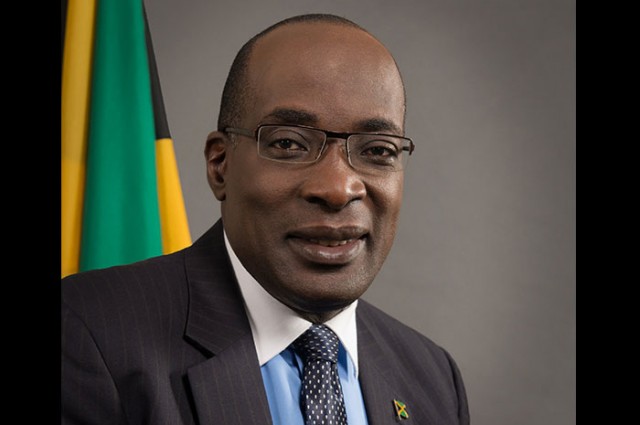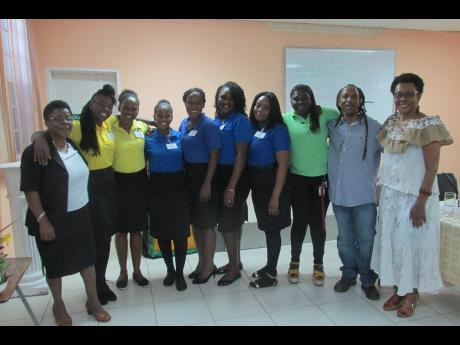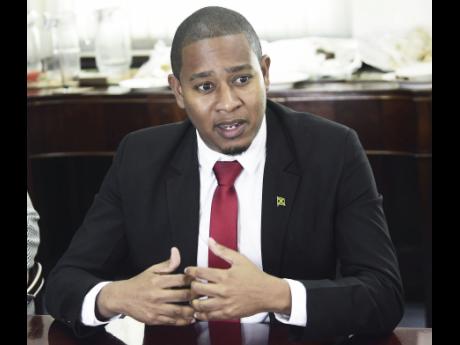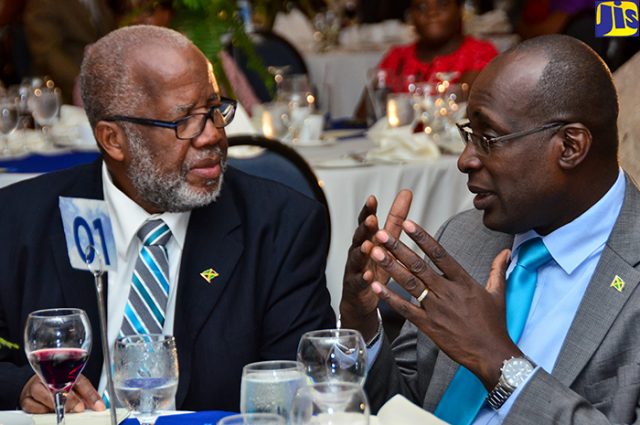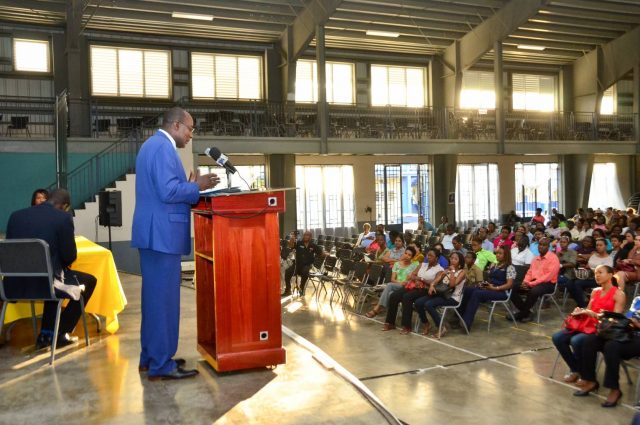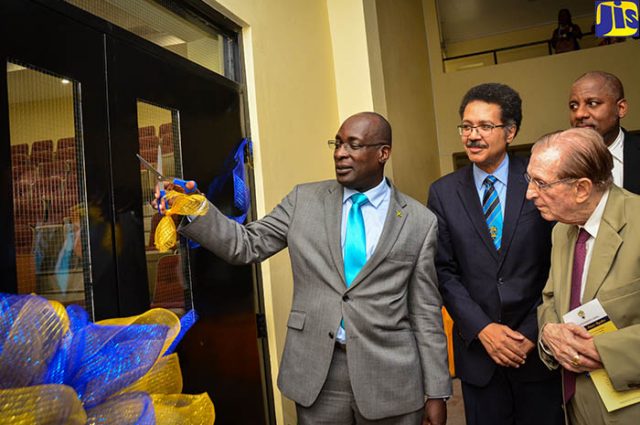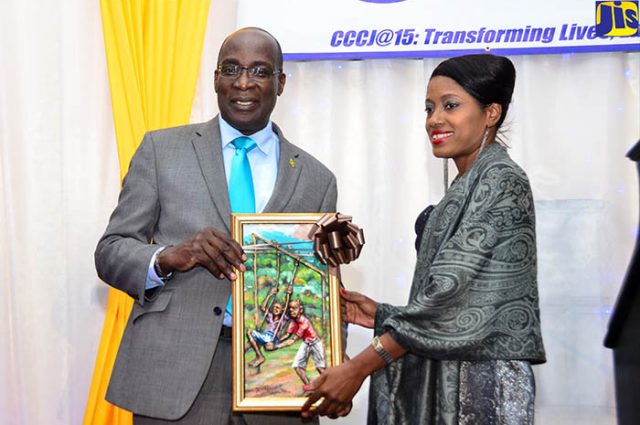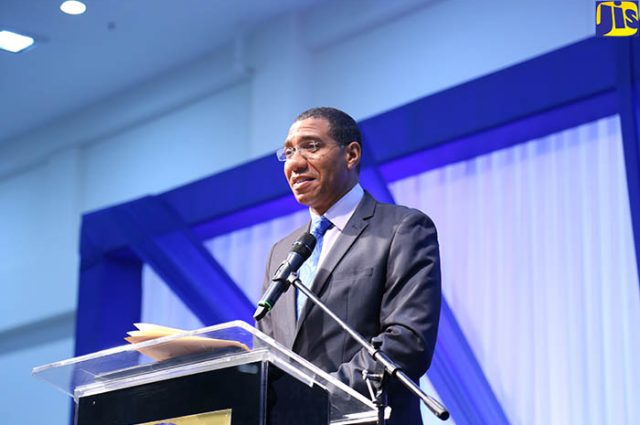JIS: As we begin this new school term, let me take this opportunity to extend Happy New Year greetings to all stakeholders in our education system including our hard working teachers, students, parents, board members, administrative, ancillary, and Ministry of Education, Youth and Information staff.
Each new year brings with it opportunities for renewal and a new focus, and this year will be no different.
Whatever is achieved nationally, will be dependent on what we do as individuals, working together as teams in an extended chain of activities.
Let us therefore go forward with a renewed sense of hope and belief in our collective abilities to find sustainable solutions to new and long-standing challenges in our education sector.
We can look back at the year just ended with some satisfaction that much was achieved in advancing access to education by more of our students.
We are pleased that with the allocation of more financial resources, our schools were better able to manage their administrative functions.
There was also increased support for additional infrastructure development and maintenance of selected primary schools.
With more money being put in the system, the Government now spends just over $37.6 billion, on secondary education alone. This includes funds for salaries, grants, TVET, ICT, science, infrastructure, furniture and nutrition. That means depending on the school population that some institutions have a higher per capita of $119,000 while others saw $176,994 per capita at the secondary level.
Through targeted intervention, teachers at the primary and secondary levels were helped in specialised workshops to better prepare themselves and their students for national exams. The results from the Grade 4 Literacy and Numeracy Tests were particularly encouraging and improvements were recorded in GSAT, CSEC and CAPE.
We must again say special thanks to our teachers for their dedication and professionalism in going beyond the call of duty in delivering a high quality product to our children.
We are also pleased that we were able to develop the National Qualification Framework and this was launched in February. In this way, we have begun to bridge the gap between academic qualification and technical vocational qualification. Our aim is to create a track for the occupational degrees that is separate from traditional degrees.
We ended the year with the good news that more than 100 early childhood institutions had met all the operational standards of the Early Childhood Commission to be fully certified. We will continue the work to ensure that more of our basic schools achieve the set standards.
In this new year we will have the opportunity to consolidate and finalize policy positions to support improved performance in the system. The review of the Education Regulations (1980) is far advanced and when completed will address matters which have a direct or indirect impact on students’ success.
As we move ahead with plans to replace the GSAT with PEP next year, we have already started to roll out our examination preparation strategies with workshops and public education programmes for teachers and parents.
With our students in Grade 6 now in the final preparation stages for GSAT, I implore all parents to give full support to your children. Encourage them; do not abuse them even where you think they are not taking their work as seriously as they should.
During the course of this term we also intend to outline the proposed grooming and nutrition policy for schools. This is aimed at promoting a more healthy lifestyle among our students.
In addition, as part of wider Government policy, we have made a commitment to place stronger emphasis on the development of Jamaica’s early childhood education sector. To this end we have provided increased funding in partnership with the Ministry of Health and the Ministry of Labour and Social Security to reactivate the Early Stimulation Programme for mother and child from birth to age three.
Our focus is to support the birth to three (3) years old group through the Early Stimulation programme allowing our babies to be developmentally ready for the three-plus years.
Nutrition, stimulation and protection from violence are three of the critical areas that should be addressed during the first 1, 000 days and we intend to step up the support in this area, this year.
We at the Ministry of Education, Youth and Information see our mandate as that of helping our students to develop their intellectual capacity and social skills to advance their personal and national development. We cannot do this without the full involvement of parents and teachers.
The Ministry will continue to support the professional development of teachers as part of our capacity building programme. In this regard, the National College for Educational Leadership (NCEL) has trained over 2000 school leaders in various programmes who are making their impact in the system.
We are now working with NCEL to develop a certification programme with multiple pathways including prior learning assessment for those principals who may need this as a requirement to become fully qualified based on the criteria established for full appointment.
This will provide greater flexibility for principals in the system. NCEL is also embarking on policy specific training on a yearly basis.
Partnership is the key to achieving desired outcomes in the education sector and we will continue to build on these relationships this year.
I also take this opportunity to say special thanks to our friends and family in the Diaspora who have supported many initiatives to partner with us in advancing the education of our children. Together much more can be and will be achieved this year.
As we move into this second term of the academic year, we are mindful of current negotiations underway between the Government through the Ministry of Finance and the Public Service and the Jamaica Teachers Association.
We value and respect our teachers and wish for an amicable and speedy settlement to these negotiations that is satisfactory to all parties,
We advocate for mutual respect and wish to avoid any disruption to the education of our children – the future of our country.
Let us forge ahead confident that much work has already been done to improve school plants, to support the nutritional needs of our children and the most vulnerable among them.
We thank you all for your support and we look forward to a very good 2018.
Thank you and May God richly bless us all.
I wish for all Jamaicans a Peaceful and Prosperous New Year.
CAPTION: The Hon. Senator Ruel Reid, CD, Minister of Education, Youth and Information


